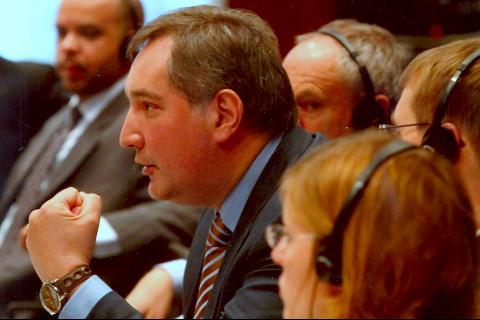Libya Herald exclusive
Tripoli, 22 April:
Deputy Prime Minister Mustafa Abushagur in welcoming a US business delegation at the Prime Minister’s office this . . .[restrict]week made it clear that Libya was to embark on a major development programme across a wide range of sectors.
The multi-sector business delegation of about 20 leading US companies were keen to understand which areas Libya was planning to develop and where could they expect to be able to seek some business.
Libya needs development in all areas
We are seeking ‘development in every aspect of Libyan life including education and training, agriculture, military, security, health, transport, capability-building etc.’ explained the Deputy Prime Minister.
‘The cranes you see stationery need to start moving. That’s where you come in. We need a wide group of sectors and companies to participate together with Libyans to rebuild Libya.’ He confirmed to the listening delegation.
Priority projects?
International companies keen to do business across the world as well as in Libya during tough economic conditions, were eager to find out which sectors Libya was most likely to reactivate first.
Deputy Prime Minister Abushagur confirmed the universally accepted viewpoint that Libya had fallen way behind the rest of the world and its immediate peers such as the UAE in many sectors.
‘We need to get all the projects to start again’, he confirmed. ‘We are a transitional government, but we have a set of priorities that we need to meet in the meantime such as basic needs. We need to rebuild schools in months. The health system needs a lot to be done in months. The oil industry needs much maintenance to continue its productivity ‘, Abushagur explained.
Safety and security means jobs
Next the Deputy Prime Minister moved on to the important topic of safety and security and linked it to economics and business.
‘There are certain priorities and security is a top priority’, he emphasized. ‘Libya is a much safer place than you thought’, he proposed to the gathered business delegation.
‘A lot has been accomplished over the last 6 months and there is a lot to do. There are still challenges from both within and without. That is expected. There are many Libyans who have Kalashnikovs and they have got attached to them. They have no jobs to go to therefore we need to create jobs for them ’, he said, clarifiying his linkage between business and security.
Private sector and the role of government
The Deputy Prime Minister then moved on to the topic of ‘doing business in Libya’.
‘We also need to change how business is done. We need to revamp the regulatory system so you can do business well in Libya. We need business to be done in a competitive, transparent manner and we need to help and encourage and allow the private sector to grow’.
Referring to the previous regime’s stifling bureaucracy and centralization, he confirmed: ‘We need to get away from the government controlling everything centrally. We need a real strong business sector, not just a façade of a private sector’.
The Deputy Prime Minister was nevertheless realistic about the task that will face his and any succeeding Libyan governments. ‘It will take time’, he stressed, nevertheless he confirmed his government’s desire for US companies to do business in Libya. ‘We would like you to build partnerships with Libyan businesses’, he concluded. [/restrict]








